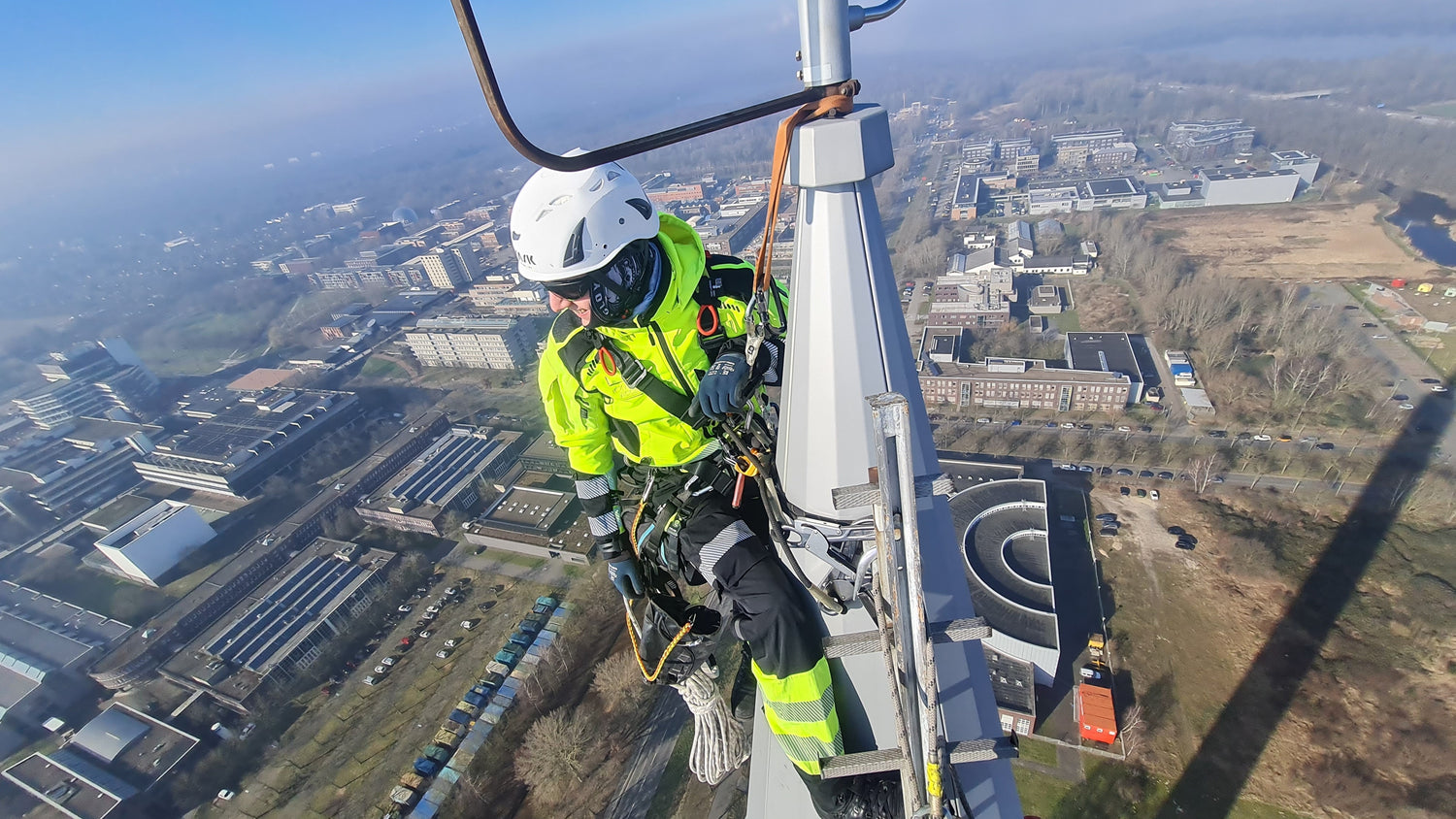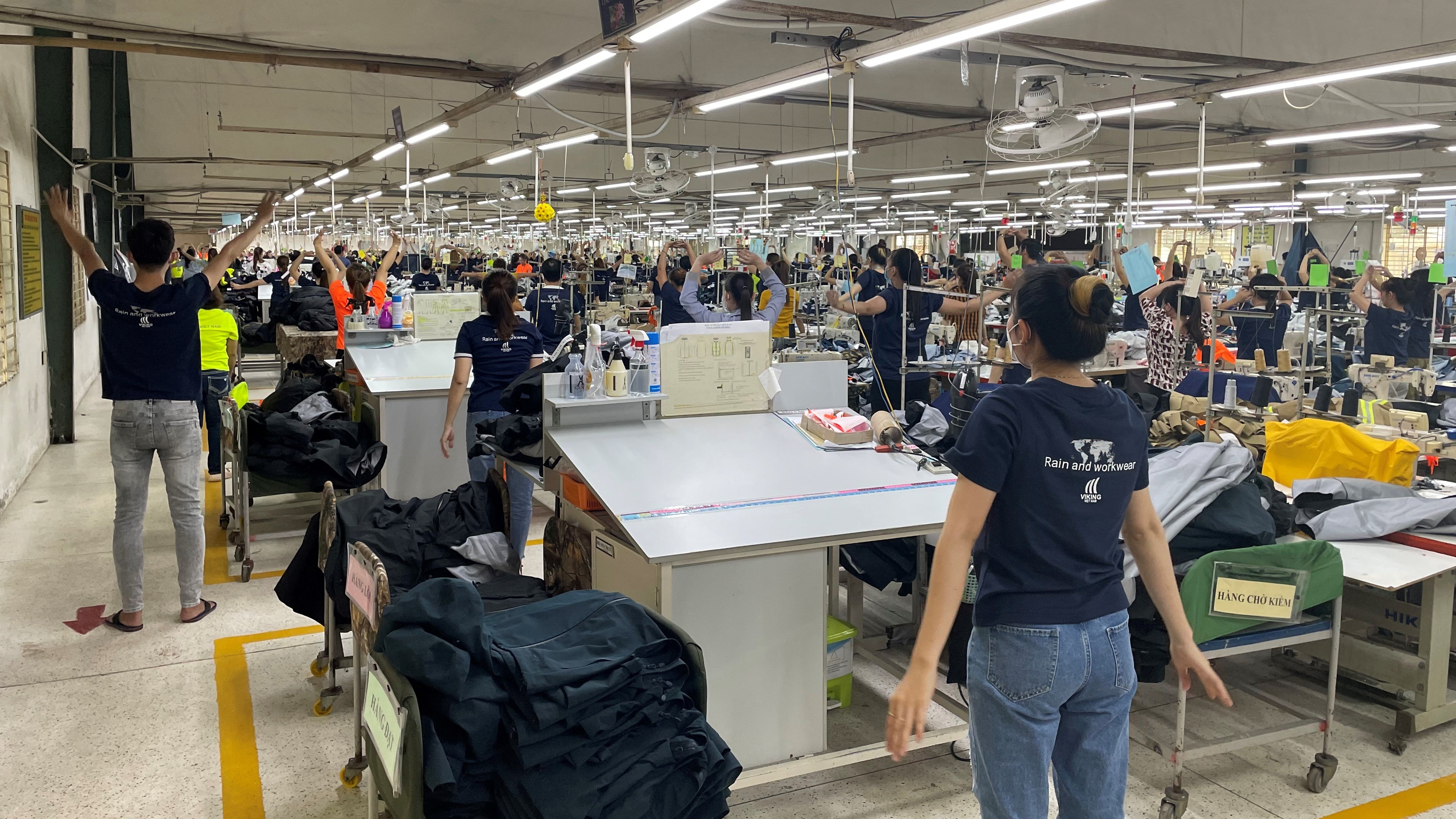Rope access professionals, also known as rope access technicians (RAT's), are individuals who use specialized techniques to access hard-to-reach areas using ropes and other equipment.
They are trained to work at heights and in confined spaces, and their work often involves inspecting, repairing, or maintaining structures such as bridges, buildings, and wind turbines.
Safety is of the utmost importance for rope access professionals, as they work in potentially hazardous environments. They must follow strict safety protocols and use appropriate personal protective equipment (PPE) to ensure their own safety and the safety of those around them.
In addition to safety, rope access professionals must also be physically fit, as their work often requires physical exertion. They should also be able to work well in a team and have good communication skills, as they may be working with others to complete tasks or to coordinate their movements.
Rope access professionals must also be able to think critically and problem-solve, as they may be faced with unexpected challenges while working at heights or in confined spaces. They should be able to think on their feet and make decisions quickly in order to complete their tasks safely and efficiently.
What is required to become a Rope Access technician?
If you're interested in becoming a Rope Access professional, there are a few requirements you need to meet before you can get started.
- Physical fitness and comfort working at heights.
- Completion of a comprehensive training program provided by an accredited organization.
- Theoretical and practical knowledge of Rope Access techniques, equipment, and safety procedures.
- Hands-on experience working at heights, performing rescue operations, and dealing with emergency situations.
- Maintenance of certification through regular refresher courses and assessments.
First and foremost, you need to have a good level of physical fitness and be comfortable working at heights. Rope Access work involves scaling tall structures, such as buildings, towers, and bridges, often in challenging environments, such as offshore platforms or industrial settings.
To become a Rope Access professional, you will need to complete a comprehensive training program that covers both theory and practical aspects of the job. The training is provided by a number of accredited organizations, such as the Industrial Rope Access Trade Association (IRATA), the Society of Professional Rope Access Technicians (SPRAT), and the Global Wind Organization (GWO). These organizations provide internationally recognized training programs that ensure you receive the necessary skills and knowledge to perform Rope Access work safely and efficiently.
During the training, you will learn about Rope Access techniques, equipment, and safety procedures. You will also gain hands-on experience working at heights, performing rescue operations, and dealing with emergency situations. The training can take anywhere from a few days to several weeks, depending on the level of certification you are seeking.
Once you have completed the training, you will need to gain practical experience in the field. This typically involves working as an apprentice or assistant to an experienced Rope Access technician, gradually building up your skills and knowledge over time. You will also need to maintain your certification by completing regular refresher courses and assessments to ensure you stay up-to-date with the latest industry standards and best practices.
In summary, becoming a Rope Access professional requires a combination of physical fitness, practical skills, and theoretical knowledge. By completing a comprehensive training program and gaining practical experience, you can become a qualified Rope Access technician, providing valuable services to various industries while maintaining the highest standards of safety and quality.




3 comments
Evolution
Great post! The blog effectively highlights how rope access offers fast, safe, and cost-efficient solutions for maintaining critical infrastructure — especially when time and access are constrained. The Gujarat coastal jetty example vividly illustrates the real-world value of IRATA-certified expertise in urgent scenarios
Wiseman
Im level 1 rope access irata i looking b
Rosy
I love reading your posts! You’re so creative and interesting, it’s a real breath of fresh air. I would be happy if you left some comments on my blog too :) https://londonprofessionalabseiling.co.uk
Leave a comment
This site is protected by hCaptcha and the hCaptcha Privacy Policy and Terms of Service apply.